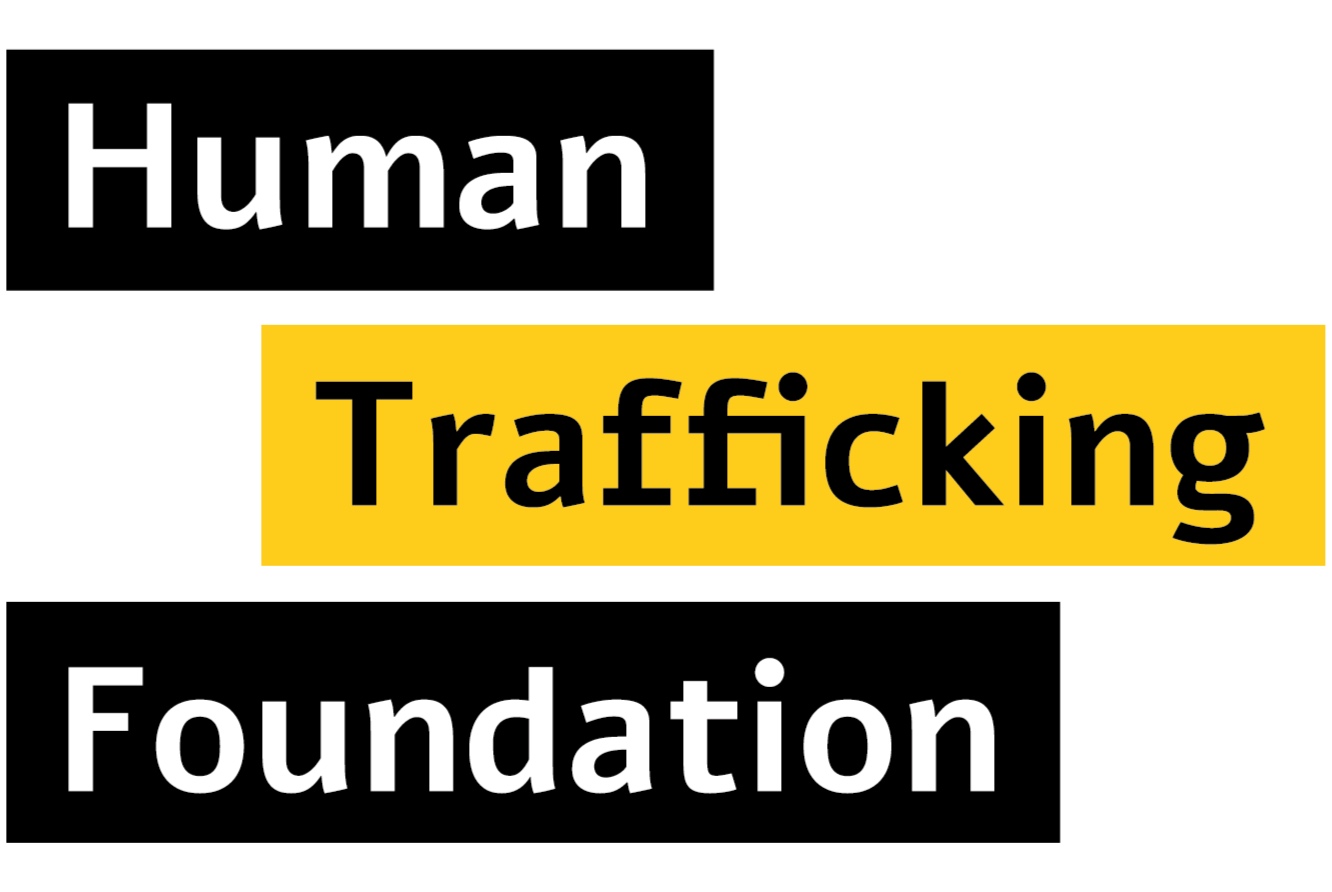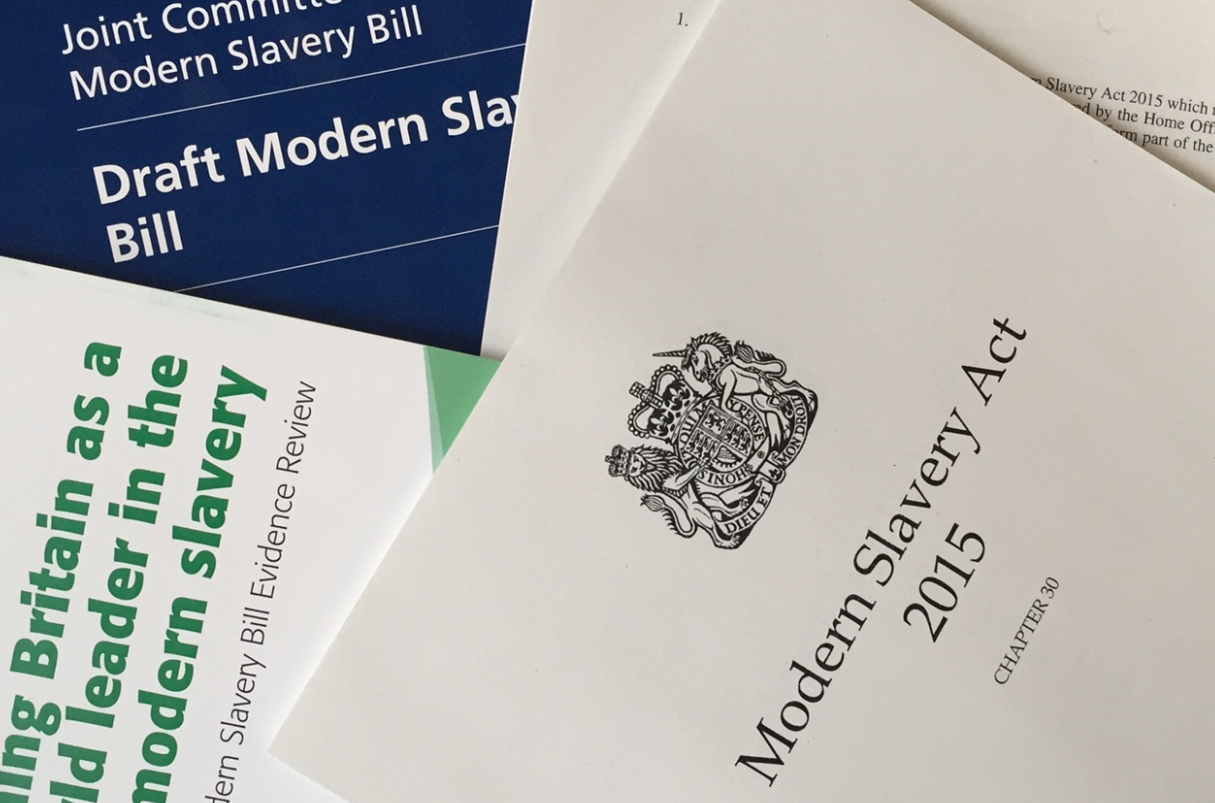What is Human Trafficking?
The UN defined human trafficking in the Palermo Protocol as the ‘recruitment, transportation, transfer, harbouring or receipt of persons by means of threat, or use of force, coercion or deception…to achieve the consent of a person having control over another person, for the purpose of exploitation’ . According to this definition, trafficking includes sexual exploitation, forced and bonded labour, domestic servitude, any form of slavery and removal of organs.
Human Trafficking = Act + Means + Purpose
All 3 components must be present for an adult to be considered trafficked. However, as regards children, the ‘means’ component is not required as they are not able to give consent
What is Modern Slavery?
The Home Office has described modern slavery as “a serious and brutal crime in which people are treated as commodities and exploited for criminal gain. The true extent of modern slavery in the UK, and indeed globally, is unknown".
The Modern Slavery Act 2015 encompasses human trafficking as well as slavery, servitude and forced or compulsory labour
“Traffickers and slave masters use whatever means they have at their disposal to coerce, deceive and force individuals into a life of abuse, servitude and inhumane treatment.” HM Government
Modern Slavery = Means + Purpose
It does not necessarily include the ‘Act’ element of the human trafficking process
In practice, the terms modern slavery and human trafficking are often used interchangeably
Trafficking in the uk
In 2022, 16,938 potential victims were referred into the National Referral Mechanism to be identified as survivors of trafficking and to receive support.
In reality, the extent of human trafficking in the UK is likely to be far greater than the NRM statistics would suggest. The Home Office has estimated in its Modern Slavery Strategy that there may be as many as 13,000 people held in slavery in the UK, while the Walk Free Foundation’s Global Slavery Index estimates 136,000 people on any given day.
Exploitation in the UK takes a variety of forms, but most commonly forced labour, sexual exploitation, domestic servitude, and forced criminal activity.
A full breakdown of the NRM statistics can be found here.
Consent is irrelevant to exploitation: The Palermo Protocol and Home Office guidance both make clear that a person cannot consent to their own exploitation: “An individual’s consent to the conduct alleged to amount to slavery servitude or forced or compulsory labour does not prevent the offence being committed.”
Exploitation need not have taken place yet to constitute slavery or human trafficking: Home Office guidance states that: “Under the Convention, a person is a ‘victim’ even if they haven’t been exploited yet…it is the purpose which is key, rather than whether or not exploitation has actually occurred...victims may have experienced serious trauma in their home country or on the way to the UK and may still be in need of support.”
The crime of slavery overrides any illegal immigration or other minor offences: Rt Hon Karen Bradley MP, former modern slavery Minister: “The intent of the offence of illegal working is clear; it is not aimed at the victims of modern slavery.” The person exploiting an individual should be the focus of the primary law enforcement effort, while victims of slavery should be treated as victims rather than perpetrators of crime. An accusation of theft or illegal migration should not take precedence.
Victims of slavery often do not fit a stereotype: Victims of human trafficking can come from a variety of backgrounds including being well educated and from wealthy families. Adult men and boys can be victims of trafficking in similar types of exploitation to women and girls, and many victims of slavery come from the UK as well as abroad. Traffickers may also not fit an expected profile and may appear to be outwardly respectable and likeable people.
People rarely self-identify as victim of trafficking/slavery or easily reveal their experiences: Victims may not self-identify as a victim of trafficking for a variety of reasons, including but not limited to: fear of reprisals from their exploiters; the impact of trauma on their ability to recall and disclose their experiences; stigma; and an unwillingness to consider them self as a 'victim'. They are also unlikely to be familiar with terms such as trafficking or modern slavery.
Not all migrants working illegally are trafficked: While not all victims will identify as victims of trafficking it is important to also recognise that not all migrants working in the UK, for example, for less than the minimum wage or in an illegal activity have been trafficked.
Smuggling is not trafficking: Frontline staff must also avoid confusing human trafficking with human smuggling. In smuggling cases, asylum seekers and immigrants pay people to help them enter the country illegally. This is a crime against the state rather than a crime against an individual. Smugglers provide an (illegal) service rather than treating a person as a commodity. It is also short-term rather long term with a one off payment rather than ongoing appropriation.
However it is important to note that trafficking victims may start out believing that they are being smuggled, and be free on arrival but end up in a potentially exploitative situation, where they are forced to work to pay off their ‘debts’, which may be increased over time to retain control over them.
Sex trafficking
Idora was trafficked to the UK from Nigeria. She was training as a primary school teacher when a man befriended her and offered her a cleaning job in the UK earning enough money to fulfill her dream of going to university.
Before leaving Nigeria she was made to participate in a witchcraft ceremony, drinking a mixture of the inside of a hen, and promising never to disobey him or else she would go mad. She was given false documents, including a script of what to tell border officials in the UK.
Idora was collected at the airport and driven to a house in London, where she was locked in a room with three other women and sexually exploited for several months. All the whole she lived in fear of the witchcraft controlling her.
Following a police raid, she was placed in a detention centre and then a hostel. However Idora returned to her trafficker for fear that they would harm her mother in Lagos. She was exploited for a further 7 months before a second police raid placed her in an NGO-run shelter.
Labour Trafficking
Mike lost his job during the financial crash and was sleeping rough when he was approached by two men. They offered him work near London.
He was taken to an old dirty shed with a tin roof where he was to live, shared with another man. Every day they were picked up by a van at 7am. They spent the day knocking doors asking people if they wanted any work done, such as digging patios or making drive-ways. The were picked-up at 9pm. If they didn’t get back in time, they were beaten. Mike and the other men were all afraid of the beatings, and worked 6 days a week unpaid. When one of the men tried to escape, he was beaten with a spanner.
Mike was rescued in a police raid. He described how all the workers look 'skinny and unwell, as if we had all been in a concentration camp'.
Child Trafficking
Cristina was 16 when her mother forced her into prostitution to help cover the cost of their home in Romania. One client, Sorin, suggested babysitting work in the UK. Cristina didn't trust him when he provided false ID, but her mother wanted her to go.
Sorin drove them from the airport to a house in Birmingham. There, a man and woman controlled three girls who worked for them in their spa salon doing massage. She was given the name Roxie and sexually exploited for more than a year.
One day she was questioned by the police. As she didn't speak English she couldn't understand their questions. They took her to a police station where she spent a night in a cell. When she was able to speak through an interpreter she testified against her traffickers and was placed in local authority care. Her traffickers have since attempted to kidnap her from care.
Domestic Servitude
Rohiti grew up in Indonesia. When her single mother became sick Rohiti had to find work. When she couldn't find work in her village she went to Hong Kong, hoping to earn enough to support her mother.
She was tasked with looking after three children 24 hours a day along with other household chores. She worked for 7 months but wasn’t paid - her 'employer' told Rohiti that she had to pay off the debt of her travel. The employers then arranged a ‘holiday’ to the UK, which turned out to be 16 hours work a day, sleeping on the floor, always on call, caring for the elderly grandparents as well.
Despite fearing homelessness and deportation, Rohiti ran away. She found an NGO to help her and offer advice, however with no right to remain in the UK she was forced to return home with nothing. The family who exploited her went unpunished.








